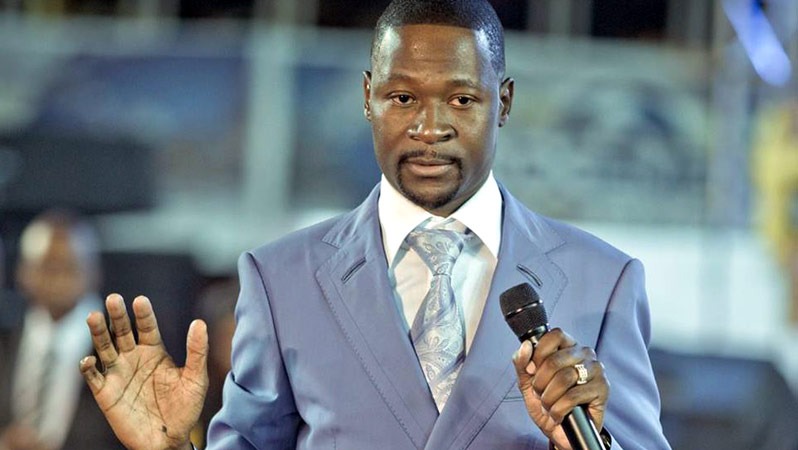
UNITED Family International Church (UFIC) leader Emmanuel Makandiwa and his wife, Ruth, have filed an exception to the $6,5 million lawsuit filed against them by a Harare couple over alleged “fake” prophecies.
Makandiwa, through his lawyer, Lewis Uriri from The Temple Bar, Zimbabwe Inns of Court, instructed by Wilson Manase, urged the court to decline entertaining the matter, arguing secular courts cannot deal with matters of faith, church practice and doctrine.
The lawsuit was filed at the High Court by businessman, Upenyu Mashangwa and his wife, Blessing.
In their lawsuit, the duo claimed that sometime in 2012, Makandiwa misrepresented in his prophecy that the couple would encounter a “debt cancellation miracle” before encouraging them to continue giving to the church.
But, as time went by, the couple had its Marlborough, Harare, house attached and sold for $500 000 instead of $700 000, among other losses they incurred later.
In response to the litigation, Makandiwa and his wife said the Mashangwas’ claims were vague and embarrassing and could not be dealt with by secular courts since they involved issues of faith.
“The plaintiffs’ (Mashangwas) summons and declaration are further excipiable (not allowable) on the grounds that they are vague and embarrassing and the vagueness and embarrassment go to the root cause of the action,” the UFIC lawyer said.
“The plaintiffs did not plead undue influence or duress to influence the paying of varying sums being contributions to any of the defendants (Makandiwas).
“In other words, the plaintiffs are seeking to invite a secular court to enquire into matters of faith and the observance thereof being matters in respect of which a secular court is not equipped to
inquire into.”
Uriri further said the Mashangwas had not reacted to the exception since it was filed last month and, as such, they were deemed to have conceded.
He also said the Mashangwas’ application was in substance an ecclesiastic dispute to which “neutral principles of law” do not apply.
“In the form it has been launched, the present application necessarily requires an inquiry into matters of faith, church practice and doctrine.
“It becomes necessary to define and illustrate the real dispute as being one of an ecclesiastical nature,” Uriri said.
“In casu (in this case), the draft order as read together with the emphatically doctrinal answering affidavit demonstrates beyond doubt that the court is being invited to be judge in matters of faith, church practice and doctrine … Even such renowned natural lawyers as Saint Thomas Aquinas and perhaps Paul of Tarsus would have considerable difficulty presenting such a case to an ecclesiastical court, let alone a secular court. The inquiry is one ad imposibilia (impossible).
“This court is not an ecclesiastical court. It is a secular court of positive law without the means to inquire into matters of faith, church practice and doctrine. It is urged to decline jurisdiction.”
The Mashangwas are demanding $1,7 million from Makandiwa, accusing him of recommending a de-registered lawyer, who later reportedly duped them.
They are also demanding $2 million compensation, claiming their name was used to advance Makandiwa’s interests, adding the UFIC leader defamed them in reports carried by newspapers.
In their response, the Makandiwas said: “In any event, the plaintiffs admitted partnership in the gospel cannot be described as a contribution to the defendants.
“This claim is, thus, both vague and embarrassing in as much as it does not disclose a justiciable cause of action.”
Makandiwa also said the Mashangwas “have not pointed out the words they say are defamatory in articles which the plaintiffs are alleging the defendants to have published … The sting of the unknown material is not pleaded nor is there an allegation that the alleged publication is defamatory per se.”
The matter is still pending.
